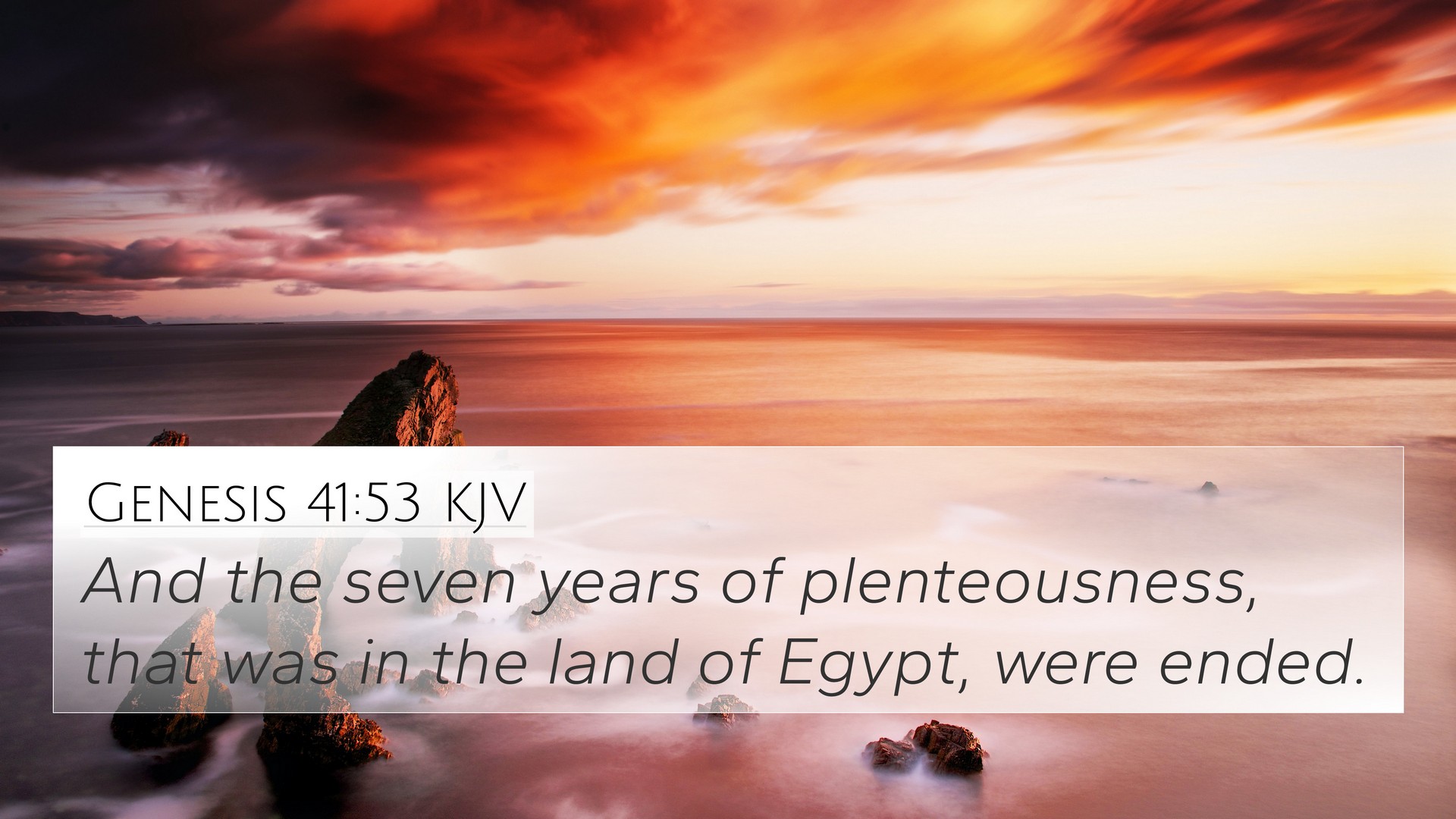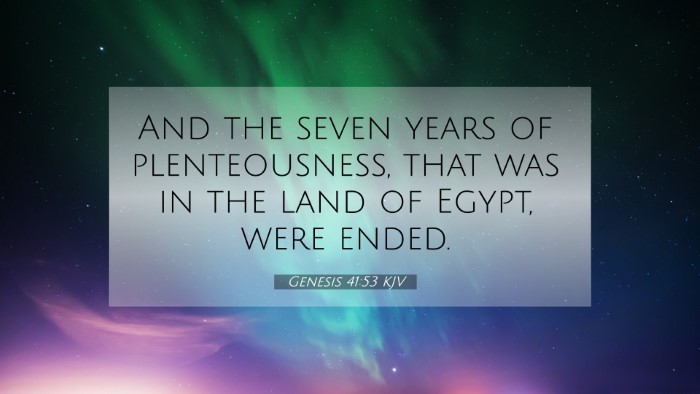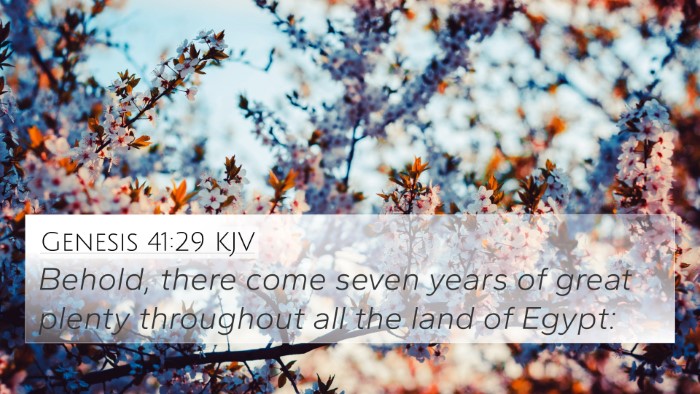Meaning and Interpretation
This verse marks a critical turning point in the narrative of Joseph in Egypt, symbolizing the end of a prosperous era before the onset of famine. The verse emphasizes the sovereignty of God in the unfolding of events, highlighting how times of abundance can precede periods of need.
Commentary Insights
-
Matthew Henry’s Commentary:
Henry discusses the significance of recognizing the seasons of plenty and the importance of preparation for times of scarcity. He suggests that this verse serves as a warning to be wise stewards of God’s blessings and to prepare for challenging times ahead.
-
Albert Barnes’s Notes:
Barnes focuses on the prophetic nature of Joseph's dreams in relation to this event. He notes that Joseph's insight into Egypt's agricultural cycles signifies divine revelation and underscores the necessity of discernment in interpreting the signs of the times.
-
Adam Clarke’s Commentary:
Clarke elaborates on the occurrence of seven years of abundance, suggesting this serves as a divine preparation stage for the greater trials to come. He connects this to biblical themes of faith and reliance on God’s provision.
Key Themes and Cross-References
This verse encapsulates several significant themes within the biblical narrative:
- Divine Providence: The control God has over agricultural and economic cycles is evident in God’s foresight through Joseph.
- Preparation and Stewardship: The importance of preparing for future hardships.
- God's Faithfulness: God’s promise of care and provision, even in times of famine.
Bible Cross-References
Genesis 41:53 relates to various other scriptures that expand on its themes:
- Genesis 41:30 - "And there shall arise after them seven years of famine; and all the plenty shall be forgotten in the land of Egypt..."
- Genesis 45:6 - "For these two years hath the famine been in the land..."
- Proverbs 6:6-8 - "Go to the ant, thou sluggard; consider her ways, and be wise: Which having no guide, overseer, or ruler, provideth her meat in the summer..."
- Luke 12:16-20 - The parable of the rich fool who failed to prepare for his future.
- James 4:14 - "For what is your life? It is even a vapor, that appeareth for a little time, and then vanisheth away." (A reminder of the fleeting nature of abundance.)
- Matthew 25:1-13 - The parable of the ten virgins as an exhortation to be prepared for what is to come.
- John 6:12 - "Gather up the leftover fragments, so that nothing will be lost." (Emphasizing stewardship.)
Exploring Connections Between Bible Verses
Exploring the connections between these verses reveals patterns of God’s provision and human responsibility throughout Scripture. By studying the connections between Bible verses, one gains deeper insight into the cohesive narrative of the Bible.
Tools for Bible Cross-Referencing
To explore these connections, utilizing resources like a Bible concordance or Bible cross-reference guide can be invaluable. Engaging in cross-reference Bible study methods allows for a richer understanding of biblical themes and verse relationships.
Conclusion
Genesis 41:53 serves as a vital reminder of the cyclical nature of life and the need for preparation and discernment. It reinforces the theological themes of trust in divine wisdom and stewardship during times of prosperity, urging believers to actively engage in understanding and preparing for the future.





